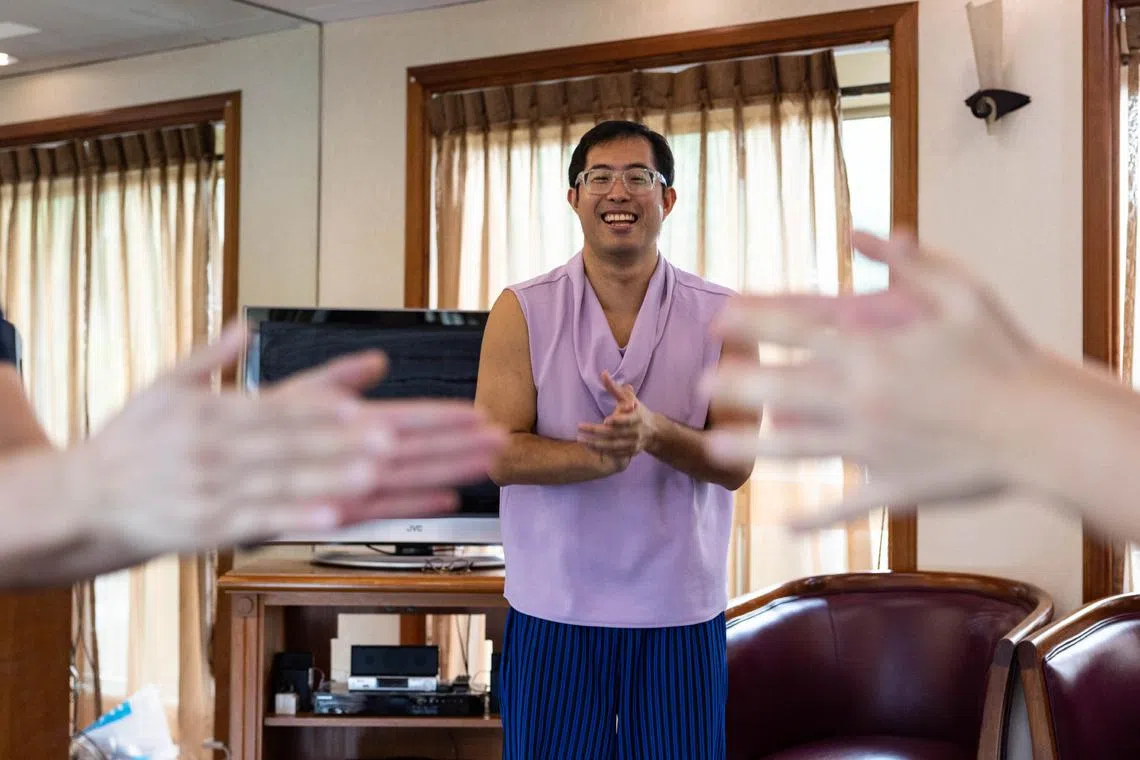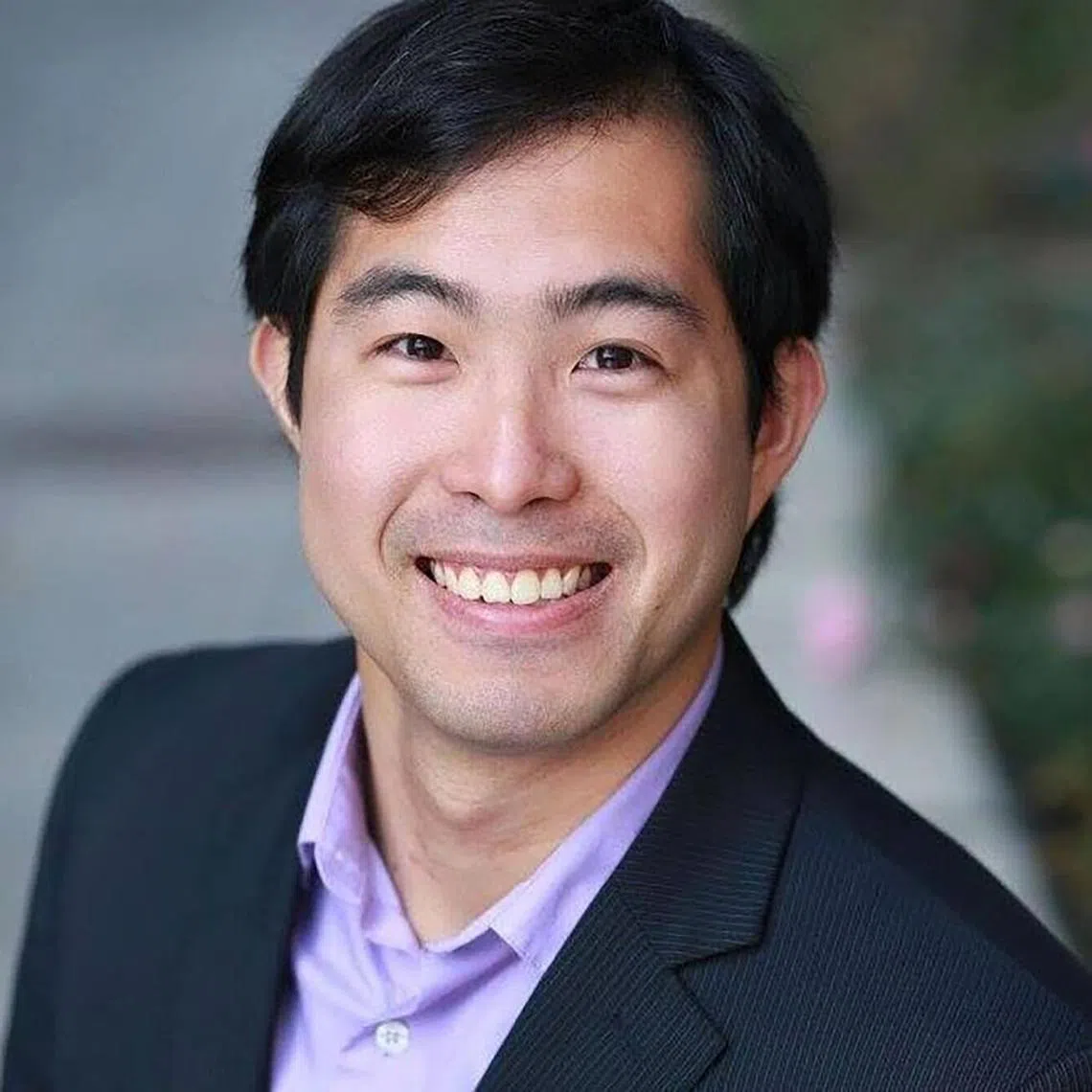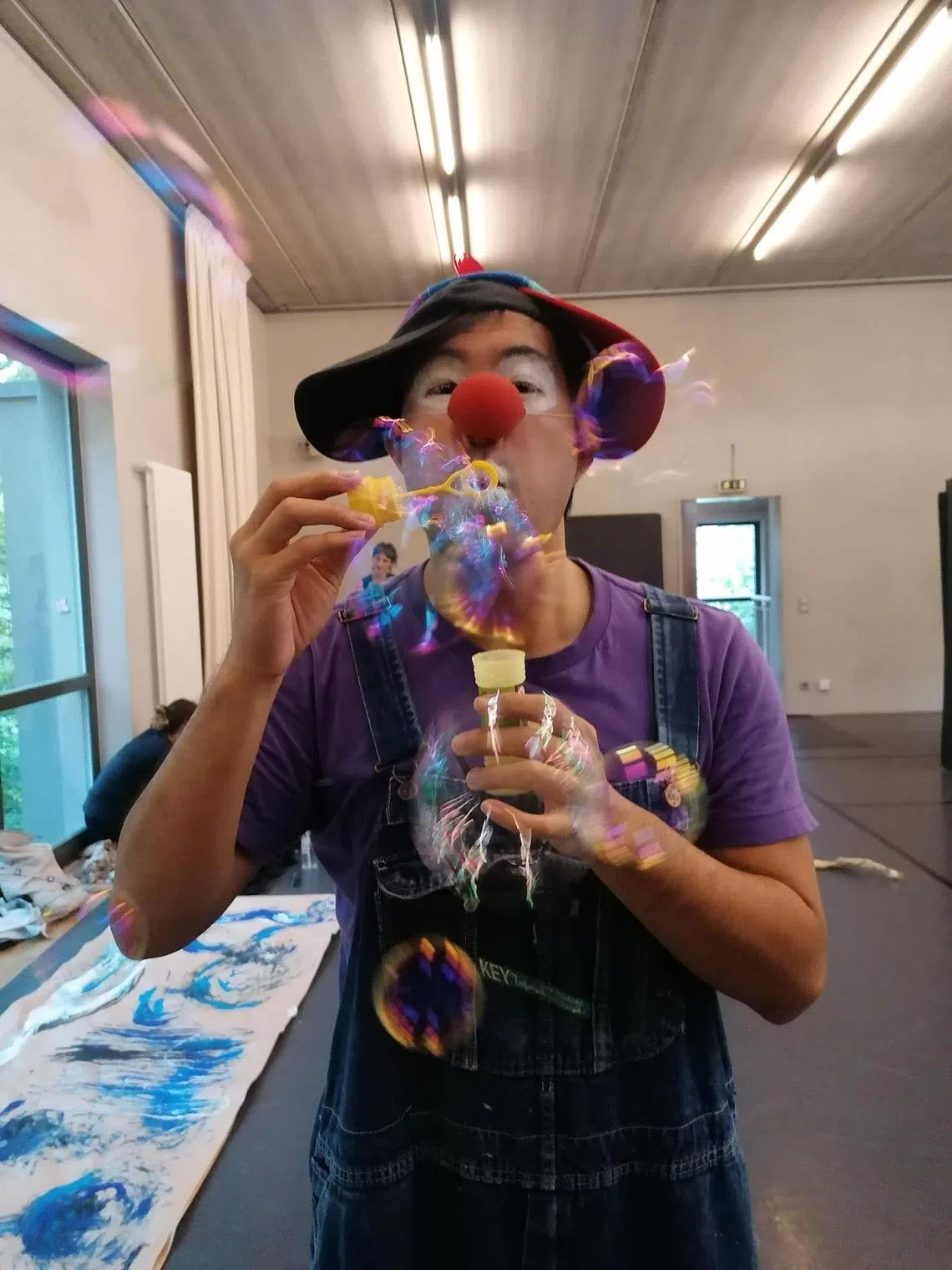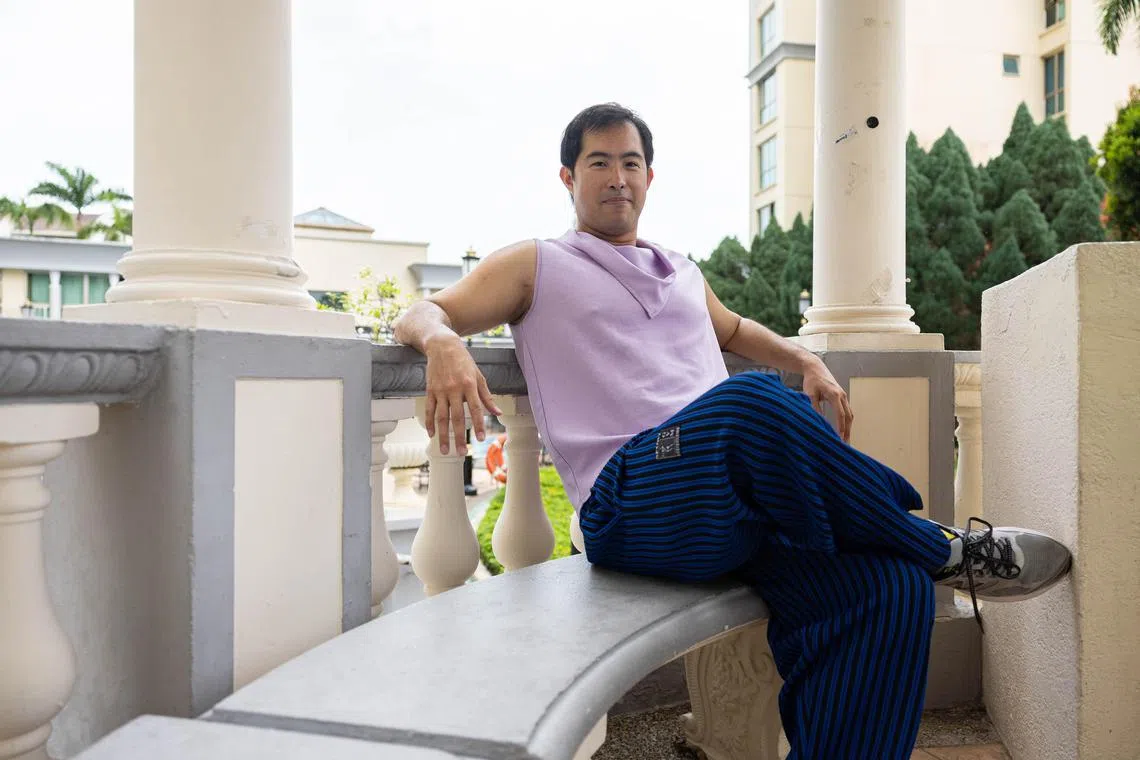Afterlife of finance bros: Trading in Wall Street to be a clown
Sign up now: Get ST's newsletters delivered to your inbox

Mr Eugene Chow gave up a job that checked all the typical boxes of success for a more unconventional pathway in the performing arts.
ST PHOTO: BRIAN TEO
Follow topic:
SINGAPORE – For 35-year-old Singaporean Eugene Chow, disillusionment with the corporate world led to an unexpected career change: leaving Wall Street to become a professional clown and performing artist.
Landing a job at accounting firm Ernst & Young (EY) in New York straight out of school in 2015 felt like the culmination of all his ambitions.
“When I got the job there, it felt like I’d arrived,” he says. “There were all the tick marks of success – as we Singaporeans call it – money, prestige, a clear growth trajectory, being in the big city.”
Chasing conventional markers of success, the Temasek Junior College alumnus pursued his undergraduate degree in aerospace engineering at the University of Michigan, followed by a graduate programme in management at Columbia University in New York.
During his time in New York, he earned between US$72,000 and US$95,000 (S$94,000 to S$124,000) as a consultant annually. But his initial excitement soon gave way to disillusionment.

Mr Eugene Chow (pictured in a headshot from when he was working on Wall Street) says disillusionment in his chosen profession meant having to find a new calling.
PHOTO: COURTESY OF EUGENE CHOW
“The first few years were living a dream and learning what this lifestyle was,” he recalls. “But after two to three years, it plateaued. I felt like I was no longer growing as a person and no longer looked forward to doing this.”
Despite being drawn to the job for its promise of big data projects, much of his work involved monotonous and conventional accounting tasks. He felt he was “living on other people’s timelines” and pushing agendas that were not his own.
Even the networking events, meant to inspire, deepened his reservations. “There were a lot of networking sessions where we got to meet the firm’s partners. That was also when we heard a lot of their war stories. And I thought, oh my God, if I were to stay at EY, this is what I could look forward to becoming.”
That future involved becoming someone who travelled constantly for work, had surface connections with acquaintances, and little time for home life and passions for the sake of climbing the corporate ladder.
As cracks began to show in his day job, Mr Chow pursued improvisational comedy on the side “to stay sane”. What began as weekend classes grew into spending most of his after-work hours performing with an improv troupe, going to open-mic nights and immersing himself in New York’s comedy circuit.
Clowning, in particular, resonated with him because of two memories that he can still vividly recall to this day.
When he was 10, his Maha Bodhi School teacher put on a clown show and called him up to perform. He was at a loss as to what to do until the teacher whispered the answer into his ear – which he promptly blurted out, which had the class cracking up with laughter.
The other moment was when he was 29 and met four Brazilian clowns in Brooklyn. They took him to a Jacques Lecoq show – a physical theatre show inspired by the namesake French stage actor – that he found beautiful and heartwarming in equal measure. At the end of the night, they told him, “Eugene, you’re a clown, don’t you know it?”
“Clowning is about us being human. It’s about us finding the cracks in between, it’s about us being okay with not knowing,” says Mr Chow. “It’s about being truthful about who we are and being okay with being seen.”

Mr Eugene Chow says he first turned to clowning around and performing as an outlet for staying sane while working in accounting.
PHOTO: COURTESY OF EUGENE CHOW
The pull towards the performing arts became irresistible. In 2020, after five years in accounting, he applied to the Ecole Internationale de Theatre Jacques Lecoq in Paris and left New York.
But leaving such a lucrative day job was not easy.
“Before I got accepted to Lecoq in France, I was already planning to quit my job. I wrote my letter of resignation and sat on it for five months because I was so afraid to do it,” he admits.
His fears were more about societal expectations than finances. Despite the high pay and cost of living in New York, he had saved up quite a bit. While work events featured US$500 wine bottles and lavish meals, he often dined at affordable eateries for under US$10.
“I am at heart a Singaporean, so when I was in the finance world, I invested – as a lot of Singaporeans would – and planned ahead,” he says. These savings and investments meant a relatively smooth transition to his new life, as well as the €8,100 (S$11,500) annual cost of his programme fees in Paris.
“The fear was more the unknown and societal pressures about leaving what it means to be successful. You’re turning your back on your education and all of that,” says the second child of a water-treatment businessman father and housewife mother. “My collective unconsciousness was made up of all the people I’d met in Singapore and New York.”
He adds: “I was quite aware that if I left my relationships and cushy job, I was starting something new and might never see that again.”

Mr Eugene Chow says finding the right balance between saving up and pursuing one’s passions is key.
ST PHOTO: BRIAN TEO
Mr Chow spent the next two years completing his programme in theatre studies in Paris, which he funded from his savings. The programme involved everything from building up a vocabulary of movement by embodying elements like fire and water, to understanding improv, to using one’s body to portray forms from melodrama or ensemble movements.
Since 2021, he has returned to Singapore and picked up a cavalcade of different artistic endeavours: teaching tango and drama, working in theatre projects and finding opportunities to clown where he can. Some of his upcoming performances include a horror-comedy show for the Kampung Halloween festival and a work-in-progress show co-produced by The Substation.
Despite finding what he believes to be his true calling, Mr Chow says his lessons learnt were about striking the right balance between money and passion. He now makes his living from teaching dance, being a drama educator for special needs children and through his theatre performances, dipping into his savings when necessary.
“This is the first year that I’m self-sustaining as an artist, which I’m very happy about.”
The bachelor says while passion feeds the soul, it does not always fill one’s belly. “If you can’t do your passion because you’re too busy surviving, then survive. Your passion will wait for you; it’s not going anywhere and it evolves too.”
He adds: “I think a lot of people lean into focusing on survival and fall asleep at the wheel, and they never wake up. They keep pushing off their passion all the way until their 60s, even though they have enough to survive on already.
“It’s about having the awareness of not pushing it off too far, just because it will wait for you.”

